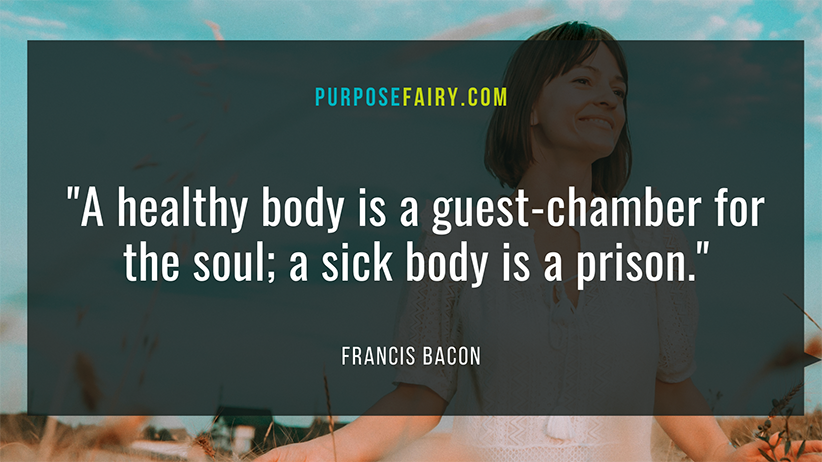Researchers have confirmed that spending time in even a small green space can have physical and mental health benefits… exposure to the natural world relieves stress, improves mood, and can have health benefits. ~ Jasmine Howard
If you’ve ever felt refreshed, rejuvenated, and just plain happier after spending a few minutes outdoors, you’re not alone. A growing body of scientific research suggests that spending time in nature can have physical and mental health benefits.
You don’t have to spend a long time in nature; just a few minutes are enough. You don’t need to spend a day backpacking into the trackless wilderness; spending some time in a small local park or in your own front yard can give you a noticeable pick-me-up.
Time in Nature
In fact, some research suggests that you don’t even need to go outside at all, as long as you have a nice window overlooking some trees or a grassy space.
Though exposure to the natural world alone has not yet been proven to be an effective treatment for any illness, doctors are increasingly prescribing time outside as part of their treatment regimens for conditions ranging from obesity and high blood pressure to breast cancer.
Time in nature has also been successfully used to treat psychological and behavioral problems, including depression, anxiety, and substance abuse disorders.
How Time in Nature Boosts Physical and Mental Health

Numerous researchers have discovered a link between physical and, especially, mental health and exposure to the outdoors. It makes sense; human beings are as much a part of the natural world as any other animal, yet in the modern era, many of us live in cities, where access to nature is limited.
Drs. Stephen and Rachel Kaplan, a husband and wife team of researchers at the University of Michigan, first began studying the mental health benefits of nature in the 1970s, at the behest of the USDA Forest Service.
They found that people are capable of two kinds of attention, what they call “directed attention” and “fascination.” Directed attention is the kind people use to keep up with the hectic pace of life in the city; fascination is the more relaxed form of attention that comes into play when people find themselves in a natural environment.
Too much time in an urban atmosphere can lead to what the Kaplans call “directed attention fatigue,” which in turn causes psychological and emotional symptoms like impulsivity, irritability, and distractibility. Exposure to nature gives the mind a chance to rest, improving focus, and boosting energy.
“Look deep into nature, and then you will understand everything better.” ~ Albert Einstein
Spending time outside can have physical health benefits, too. As many as 30 to 40 percents of breast cancer survivors suffer from chronic fatigue after treatment, but spending time outdoors can help them cope with it. It also helps them manage stress and, for those who enjoyed an outdoor lifestyle prior to cancer treatment, spending time outside can help them regain a feeling of normalcy.
Time in nature often also translates to more physical activity, since for many time spent outside means time spent walking, gardening, or participating in sports. Doctors have begun prescribing physical activity outdoors to patients suffering high blood pressure, Type 2 diabetes, and obesity.
Sometimes, the whole family is encouraged to get outside together, adding the benefits of social interaction to those of getting outdoors.

If you’re one of the many people who struggle with depression, anxiety, seasonal affective disorder, or substance abuse disorders, you can find some relief through wilderness therapy. In one British study, depressed participants experienced a 71 percent decrease in depression symptoms after a walk in the countryside.
Bringing the Health Benefits of Spending Time in Nature
Whether you’re struggling with physical or mental health problems or simply feeling stressed and chronically fatigued, you can benefit from nature therapy.
Camping or backpacking trips in the true wilderness are certainly beneficial, but they’re not a practical everyday solution. Luckily, you don’t need to move to a mountaintop cabin in order to enjoy the benefits of nature therapy.
Researchers have confirmed that spending time in nature, even in a small green space can have physical and mental health benefits. If you can’t get into the countryside, go to a local park. If that’s not feasible, as little greenery as a small patch of grass and a single tree can impart benefits. If you can’t get outside during the day, having access to a window with views of trees or grass is the next best thing.
Start Spending More Time in Nature
The Kaplans believe that just looking at birds, trees, flowers, squirrels, and other elements of the natural world can have the same restful effect as being among them. It has to be the real thing, though; researchers have determined that looking at a plasma screen TV displaying nature scenes doesn’t fool the brain.
If you’re looking for relief from physical or mental ailments or just want to relax and unwind, you might want to get outside and get some fresh air. Research shows that exposure to the natural world relieves stress, improves mood, and can have health benefits. So the next time you’re feeling down, don’t reach for that pint of ice cream — go for a walk in the park instead.
Comments
Jasmine Howard
Jasmine Howardis a freelance writer who touches on various topics and niches that relate to everyday life. In addition to writing in her free time she also enjoys traveling and getting to know the world while continuing her education. To learn more about Jasmine, check out her Gravatar.
read more
